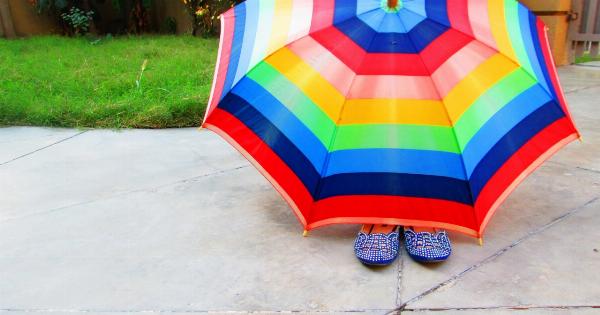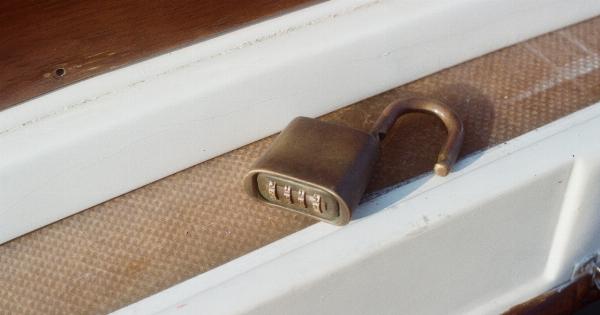Mosquitoes are pesky insects that not only cause an annoying itch with their bites but can also transmit potentially dangerous diseases.
With the rise of mosquito-borne illnesses such as dengue fever, Zika virus, and malaria, it has become increasingly important to protect ourselves from these tiny but formidable creatures. In this article, we will discuss various mosquito repellents and personal protection methods to keep these bloodsuckers at bay.
1. Chemical Repellents
Chemical mosquito repellents are a popular choice for many people due to their effectiveness in repelling mosquitoes. These repellents usually contain ingredients such as DEET, picaridin, or IR3535.
DEET is the most commonly used active ingredient and has been proven to provide long-lasting protection against mosquitoes. However, it is important to follow the instructions on the product label and avoid using high concentrations of DEET on children.
2. Natural Repellents
For those who prefer a more natural approach, there are several plant-based mosquito repellents available. Essential oils such as citronella, lavender, eucalyptus, and peppermint are known to have mosquito-repellent properties.
These natural repellents are generally safe to use but may not provide as long-lasting protection as chemical repellents. It is also important to note that some individuals may be allergic to certain essential oils, so it is advisable to do a patch test before widespread use.
3. Mosquito Nets
Mosquito nets offer physical protection against mosquitoes and are particularly useful in areas where mosquito-borne diseases are prevalent. These nets are typically made of fine mesh that allows airflow while preventing mosquitoes from entering.
They can be used over beds, windows, and even outdoor spaces such as camping areas. Mosquito nets are highly effective when properly used and maintained.
4. Protective Clothing
Wearing protective clothing is another effective way to prevent mosquito bites. Opt for long-sleeved shirts, long pants, and socks to cover your skin as much as possible.
Light-colored clothing is also recommended as mosquitoes are attracted to dark colors. Additionally, treating clothing with permethrin, an insecticide, can further enhance protection against mosquitoes.
5. Electric Mosquito Traps
Electric mosquito traps use a combination of light, heat, and carbon dioxide to attract mosquitoes and trap them.
These traps are generally effective in reducing mosquito populations in a specific area, but they may not provide complete protection when used alone. Electric mosquito traps are commonly used in outdoor spaces such as gardens, patios, and camping sites.
6. Repellent Bracelets
Repellent bracelets are a convenient and wearable option for mosquito protection. These bracelets are usually infused with natural repellent oils and can offer protection for several hours.
However, their effectiveness may vary and they may not provide complete protection against all mosquito species. Repellent bracelets are particularly useful for outdoor activities such as hiking or camping.
7. Avoiding Peak Mosquito Times
Mosquitoes are most active during dawn and dusk, so it is advisable to avoid outdoor activities during these times.
If you need to be outdoors, take extra precautions such as using mosquito repellents, wearing protective clothing, and staying in well-lit areas. Mosquitoes are attracted to areas with stagnant water, so it is also important to eliminate any standing water sources around your living spaces.
8. Keep Doors and Windows Secure
To prevent mosquitoes from entering your living spaces, make sure doors and windows are properly screened and sealed. Repair any damaged screens and make sure there are no gaps or openings where mosquitoes can gain entry.
Using mosquito nets or screens on windows can provide an extra layer of protection, allowing you to enjoy fresh air without the worry of mosquito bites.
9. Supplemental Prevention Methods
In addition to the aforementioned methods, there are several supplemental prevention methods that can further protect against mosquitoes.
These include using mosquito repellent candles or coils, installing outdoor fans to create a breeze that hampers mosquito flight, and keeping your surroundings clean and free of debris where mosquitoes can hide.
10. Conclusion
Protecting ourselves from mosquitoes is crucial to prevent the transmission of mosquito-borne illnesses. Mosquito repellents, whether chemical or natural, offer effective protection against mosquito bites.
Personal protection methods such as mosquito nets, protective clothing, and repellent bracelets can also enhance our defense against mosquitoes. It is important to implement a combination of these preventive measures and follow local health guidelines to ensure maximum protection from mosquitoes and the diseases they carry.


























